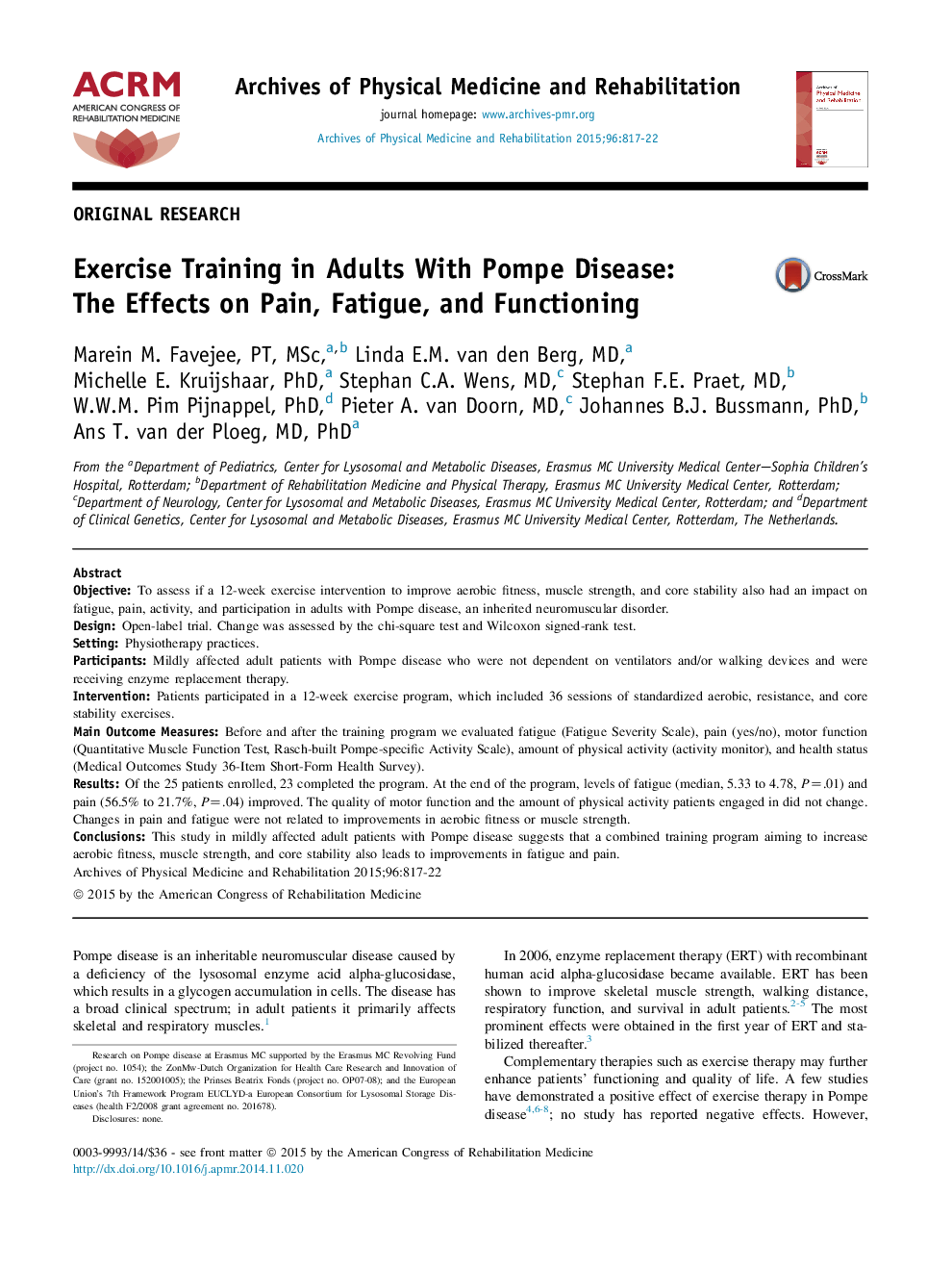| Article ID | Journal | Published Year | Pages | File Type |
|---|---|---|---|---|
| 3448369 | Archives of Physical Medicine and Rehabilitation | 2015 | 6 Pages |
ObjectiveTo assess if a 12-week exercise intervention to improve aerobic fitness, muscle strength, and core stability also had an impact on fatigue, pain, activity, and participation in adults with Pompe disease, an inherited neuromuscular disorder.DesignOpen-label trial. Change was assessed by the chi-square test and Wilcoxon signed-rank test.SettingPhysiotherapy practices.ParticipantsMildly affected adult patients with Pompe disease who were not dependent on ventilators and/or walking devices and were receiving enzyme replacement therapy.InterventionPatients participated in a 12-week exercise program, which included 36 sessions of standardized aerobic, resistance, and core stability exercises.Main Outcome MeasuresBefore and after the training program we evaluated fatigue (Fatigue Severity Scale), pain (yes/no), motor function (Quantitative Muscle Function Test, Rasch-built Pompe-specific Activity Scale), amount of physical activity (activity monitor), and health status (Medical Outcomes Study 36-Item Short-Form Health Survey).ResultsOf the 25 patients enrolled, 23 completed the program. At the end of the program, levels of fatigue (median, 5.33 to 4.78, P=.01) and pain (56.5% to 21.7%, P=.04) improved. The quality of motor function and the amount of physical activity patients engaged in did not change. Changes in pain and fatigue were not related to improvements in aerobic fitness or muscle strength.ConclusionsThis study in mildly affected adult patients with Pompe disease suggests that a combined training program aiming to increase aerobic fitness, muscle strength, and core stability also leads to improvements in fatigue and pain.
